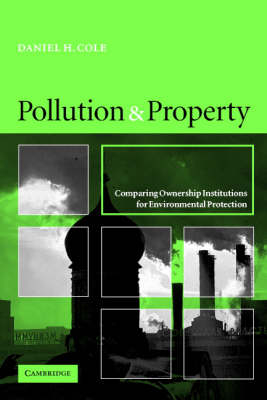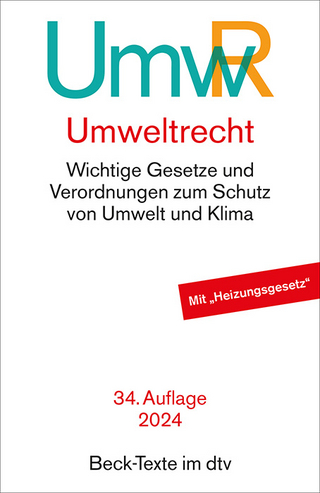
Pollution and Property
Comparing Ownership Institutions for Environmental Protection
Seiten
2002
Cambridge University Press (Verlag)
978-0-521-00109-0 (ISBN)
Cambridge University Press (Verlag)
978-0-521-00109-0 (ISBN)
Solutions to environmental problems depend on impositing private-, common-, or public-property rights in natural resources. Who should own the resources: private individuals, private groups of 'stakeholders', or the entire society (the public)? This 2002 book argues that no single property regime works best in all circumstances. Environmental protection requires multiple regimes.
Environmental protection and resource conservation depend on the imposition of property rights (broadly defined) because in the absence of some property system - private, common, or public - resource degradation and depletion are inevitable. But there is no universal, first-best property regime for environmental protection in this second-best world. Using case studies and examples taken from countries around the world, this 2002 book demonstrates that the choice of ownership institution is contingent upon institutional, technological, and ecological circumstances that determine the differential costs of instituting, implementing, and maintaining alternative regimes. Consequently, environmental protection is likely to be more effective and more efficient in a society that relies on multiple (and often mixed) property regimes. The book concludes with an assessment of the important contemporary issue of 'takings', which arise when different property regimes collide.
Environmental protection and resource conservation depend on the imposition of property rights (broadly defined) because in the absence of some property system - private, common, or public - resource degradation and depletion are inevitable. But there is no universal, first-best property regime for environmental protection in this second-best world. Using case studies and examples taken from countries around the world, this 2002 book demonstrates that the choice of ownership institution is contingent upon institutional, technological, and ecological circumstances that determine the differential costs of instituting, implementing, and maintaining alternative regimes. Consequently, environmental protection is likely to be more effective and more efficient in a society that relies on multiple (and often mixed) property regimes. The book concludes with an assessment of the important contemporary issue of 'takings', which arise when different property regimes collide.
1. Pollution and property: the conceptual framework; 2. Public property/regulatory solutions to the tragedy of open access; 3. Mixed property/regulatory regimes for environmental protection; 4. Institutional and technological limits of mixed property/regulatory regimes; 5. The theory and limits of free market environmentalism (a private property/nonregulatory regime); 6. The limited utility of common property regimes for environmental protection; 7. The complexities of property regime choice for environmental protection; 8. When property regimes collide: the 'takings' problem; 9. Final thoughts.
| Erscheint lt. Verlag | 18.7.2002 |
|---|---|
| Zusatzinfo | Worked examples or Exercises |
| Verlagsort | Cambridge |
| Sprache | englisch |
| Maße | 150 x 227 mm |
| Gewicht | 370 g |
| Themenwelt | Recht / Steuern ► EU / Internationales Recht |
| Recht / Steuern ► Öffentliches Recht ► Umweltrecht | |
| ISBN-10 | 0-521-00109-9 / 0521001099 |
| ISBN-13 | 978-0-521-00109-0 / 9780521001090 |
| Zustand | Neuware |
| Haben Sie eine Frage zum Produkt? |
Mehr entdecken
aus dem Bereich
aus dem Bereich
wichtige Gesetze und Verordnungen zum Schutz von Umwelt und Klima
Buch | Softcover (2024)
dtv Verlagsgesellschaft
21,90 €
mit Verordnungen, Verpackungsgesetz, Elektro- und …
Buch | Softcover (2024)
dtv Verlagsgesellschaft
19,90 €


